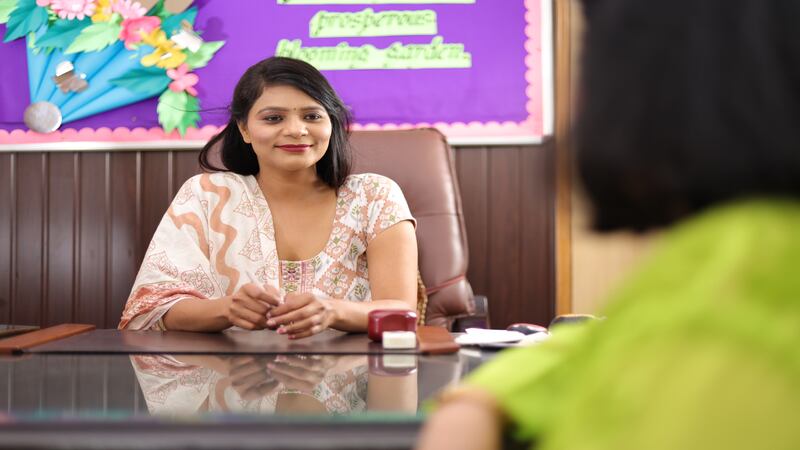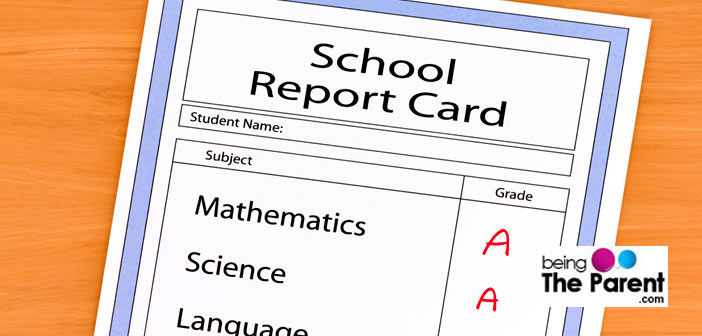
Your child’s academic progress will always be better if you are involved in it. Schools conduct parent teacher meetings to bring parents and the teachers on a common platform so as to benefit the child academically. Parents can play a vital role in their child’s academic success if they are inclined to understand what their child is learning at school, how well is he faring, and what can be done to support him.
- Why Should I Attend Parent Teacher Conference?
- Preparing For The Parent Teacher Meeting
- What Should I Do During The Parent Teacher Meeting?
- After The Parent Teacher Conference
Why Should I Attend Parent Teacher Conference?
Parent teacher meetings, or PTM for short, usually happens 1-3 times a year depending on your child’s school’s policy. For you as a parent, it is a great opportunity to:
- Understand how well your child is doing in the school
- Understand his strengths, weaknesses and interest areas
- Have an ongoing conversation about your child’s progress with his teacher
- Learn the areas where you might be able to help/encourage him at home
- Meet and interact with your child’s peers’ parents
- Finally, let your child know that you come to know what he has been up to in school
So both parents, and if not at least one, should make it a point to attend all the PTMs your child’s school organizes. A bit clueless on how to prepare, behave and follow-up on PTMs? Read on.
Preparing For The Parent Teacher Meeting
As a child, your parents must have been to several of your parent teacher conferences. You would know that side of the story. However, parents also need to prepare before they attend the parent teacher meet. If you are already involved with your child’s academic progress, you would know what issues are the most important to discuss. However, if you have been busy, you must prepare yourself to meet his teacher.
- The first step is to talk to your child. Ask him about his recent performance, test scores, any extra-curricular activities and anything else that he thinks might be brought up during the meeting. Review his previous year’s progress report for reference. Ask your child if there are any concerns or questions that he wants you to bring up
- Next step is to compile a set of questions that you want to ask the teacher. This can include:
- Is my child meeting your academic expectations?
- How is he doing in co-curricular and extra-curricular activities?
- Are their areas where you think I as a parent should intervene at home? Does he need extra help or coaching in anything?
- Is he behaving well in the class?
- How is he doing socially?
- Can you tell me more about your teaching approach?
- Is he eating his lunch dully daily?
- Are their action items for me?
- When do we follow-up on this?
- Finally, be prepared to share your child’s interest areas, favorite subjects, opinion about school and teachers and aspirations so that the teacher can understand your child better
- Since you would have been told the date and day of PTM in advance, it would be wise to schedule the same in your calendar
- Remember, it is a school parent teacher conference, so dress appropriately. Wear light makeup and refrain from decking up with flashy clothes or accessories

What Should I Do During The Parent Teacher Meeting?
You might have got a predefined time slot for your PTM or you might have to wait with other parents for your turn. Either ways, be prepared to have things delayed, especially is it is your first PTM. Creating a scene at the school because you are being awfully delayed might send wrong signals and the teacher might form notions about you as a parent which in turn might impact her level of comfort with you. Once you get your turn, remember to:
- Make notes
- Go through your list of questions one by one
- Listen to the teacher without interruptions
- Ask for samples of your child’s work, if the school does not send back assessment sheets home
- Be soft, if there is something that you do not agree with, bring it up on appropriate times
- If your child’s performance has not been very good, refrain from playing the blame game
- Get the teacher’s contact information, if you do not already have it, so that you can write/call/text him/her if there is an immediate concern. Make sure to ask the teacher how she would like to be contacted, and for non-emergency situations, when
- Socialize with other parents. Discuss on any common concerns that require a further follow-up with school administration. However, ensure that you spend 70% time on your child’s progress and only 30% time on socializing
After The Parent Teacher Conference
Once you are back home, it is a good idea to review your notes and do the following:
- Contact the teacher in case you missed out on any questions
- Have a chat with your child on the key takeaways from the meeting and review his views on the feedback
- Make a detailed plan, along with your son, on the areas of development
- Mark your calendar to do a follow-up with the teacher on the progress of the action items you discussed
- Make a quick note to prepare you for your next PTM – it is best to do it right after a PTM when your memory is fresh
Missing the parent teacher meet would mean that you miss out to receive updates on how your child is doing. PTMs provide you an opportunity to devise strategies that will boost your child’s performance. Not only this, children too feel loved and cared for when their parents are involved in their academic world. Good luck!

